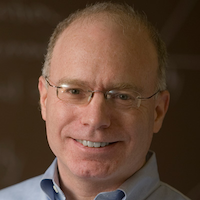 Sometimes knowing what is good for you and doing what is good for you are two very different stories. Dieters looking to lose a pound or two know that having a piece of chocolate cake isn’t the best idea. However, when the dessert list comes around its easier said than done. In the end often times the allure of chocolate wins out—despite the long term weight goal.
Sometimes knowing what is good for you and doing what is good for you are two very different stories. Dieters looking to lose a pound or two know that having a piece of chocolate cake isn’t the best idea. However, when the dessert list comes around its easier said than done. In the end often times the allure of chocolate wins out—despite the long term weight goal.
There’s a reason for this, says Dr. David Asch, executive director of Penn Medicine Center for Health Care Innovation.
“One reason people eat the chocolate cake or fail to take medication is because we have what is called present biased, we think about what is in the present [rather] than the long-term effect,” said Asch.
The same principal is often seen in healthcare too, said Asch. For example, why do some people not take their medication even though they know that in the long run it’s will improve their health?
But Asch says there are ways for people to buy into engaging with technologies that will help improve health outcomes. He will be presenting this insight at the HIMSS Digital and Personal Connected Health event at the Wynn in Las Vegas on March 5th.
“I’m very optimistic about the value of technology and I really think it is transformative when we pair the tech with insights about human behavior,” Asch said.
One of the ways to improve outcomes is to better introduce behavioral insight into the technology.
A key example of where this principal could be used is medication adherence, Asch said. The old convention was to educate people about why they should be taking the medication. But that goes back to the chocolate cake example—even if someone knows they “should” and “shouldn’t” be doing it doesn’t mean they will act within their best interest. One way to engage people is to give patients immediate reinforcement.
But getting patients to engage is just one way to improve technology. It is also important for providers to buy in. He said the same behavioral principals could be used for physicians as well—and its all about immediacy. Providers will also have more buy in if patients are using the technolgoy.
“Now that healthcare is increasingly digital there are so many opportunities to insert yourself to the clinicians journey,” Asch said.
Asch said that the medical field could take a tip or two from retailers. He noted that Amazon was a prime example, where people can order things easily and they come quickly.
In the past, people have asked him why isn’t there an Open Table concept for booking a doctor's appointment. That’s a good idea, he said. There may be some obstacles in planning this but it could be something to look into.
“I think that newer generations are expecting [faster and easier ways to access health] ,” Asch said. “People are going to expect that. They have a different expectation of how healthcare should look.”
Asch's session at the Digital and Personal Connected Health Conference will be held at 8:35 a.m. on March 5 at the Wynn Las Vegas. The conference runs from 8 a.m. to 4:45 p.m.













